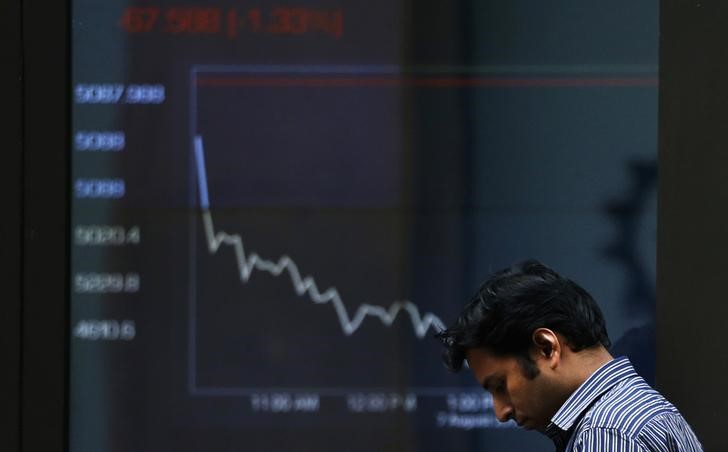Australia’s Stocks Finish Lower at the End of Trading Session; S&P/ASX 200 Index Declines by 0.35%

Australia’s stock market took a tumble at the end of the trading day, with the S&P/ASX 200 index dropping by 0.35%. The decline was primarily driven by losses in the Healthcare, Financials, and Energy sectors, which pulled down the overall performance of shares.
When the final bell rang in Sydney, the S&P/ASX 200 bid farewell to 0.35% of its value.
Among the standout performers on the S&P/ASX 200 was St Barbara Ltd (ASX:SBM), surging by an impressive 5.66%, equivalent to 0.03 points, settling at 0.56 by the closing time. Meanwhile, Elders Ltd (ASX:ELD) experienced a noteworthy gain of 4.80%, adding 0.33 points to finish at 7.20. Seek Ltd (ASX:SEK) also had a good run, climbing 3.90% or 0.85 points to reach 22.65 during late trading.
On the flip side, some stocks encountered a rough patch during the session. AMP Ltd (ASX:AMP) recorded a significant decline of 6.14%, losing 0.07 points, and concluding the day at 1.07. Netwealth Group Ltd (ASX:NWL) also suffered, declining by 3.79% or 0.54 points, settling at 13.71. Similarly, Resolute Mining Ltd (ASX:RSG) had a tough time, experiencing a drop of 3.57% or 0.02 points, ultimately reaching 0.41.
During the trading session, the Sydney Stock Exchange witnessed more rising stocks than declining ones, with a ratio of 648 to 622, while 402 stocks remained unchanged.
The S&P/ASX 200 VIX, which measures the implied volatility of S&P/ASX 200 options, saw a 2.75% increase, reaching 10.89.
Looking at the commodities market, August delivery Gold Futures recorded a modest increase of 0.18% or 3.55, with a troy ounce valued at $1,933.05. In other commodities trading, the price of Crude oil for delivery in August rose by 1.71% or 1.19, touching $70.98 per barrel, whereas the September Brent oil contract experienced a decline of 0.43% or 0.33, trading at $75.92 per barrel.
When it comes to currency exchange rates, the AUD/USD pair remained unchanged at 0.67, while AUD/JPY faced a slight drop of 0.08%, settling at 96.59.
The US Dollar Index Futures showed a marginal increase of 0.05%, reaching 102.71.





